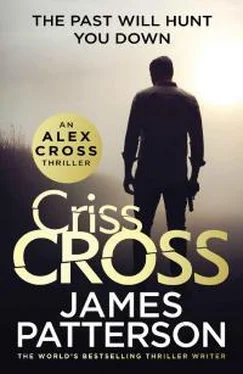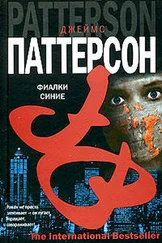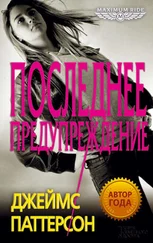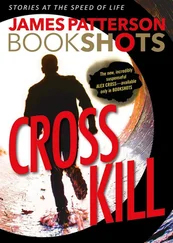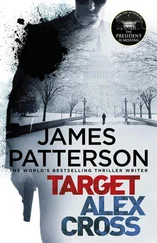I ignored her other questions and went back to working on young RJ. I held the folded T-shirt rag directly on the bullet hole, hoping to stem the bleeding. Blood soaked the cuff of my shirt and speckled my chest. People started coming out of the bodega and some of the apartment buildings.
A young black woman kneeled down to help me. She said, “I’m in nursing school. Let me keep pressure on the wound.” She wasn’t panicked and kept a very calm tone.
That helped me focus. I kept saying to the young man, “Hang in there, RJ. Help is on the way.” About a minute later, I heard the first in a storm of sirens heading our way.
It wasn’t until paramedics stepped in and took over the first aid that it really hit me what had happened. I could have been killed. I should have been killed. And I had been forced to use my duty weapon. It was the last thing I’d wanted to do. It’s the last thing any cop wants to do. But I didn’t regret it. I couldn’t. Not when I hugged my kids tonight.
And now all I could do was stare helplessly as paramedics did everything they could to save this young man’s life.
CHAPTER 6
AS MORE PARAMEDICSand squad cars arrived, I simply walked down the street a short distance and plopped onto the curb. I had nothing left. I wasn’t even ready to call Mary Catherine. I just stared straight ahead into the empty street. I noticed everything from the rough asphalt patches over potholes to the random Three Musketeers wrapper blowing in the light breeze. It felt as if the city had gone silent.
Even though the paramedics were still busy, I knew RJ was dead. My mind raced, but I couldn’t settle on a single thought. I vaguely realized it was some sort of shock settling over me. It’s a common occurrence after a police shooting.
It had all happened so fast. Virtually all police shootings do. I’d acted out of instinct. Now I had to let things take their course.
All I knew at the moment was that I couldn’t leave the scene. I just wanted to sit here with my thoughts. Silently I prayed, Dear God, have mercy on this young man’s soul . I thought about calling my grandfather, Seamus.
Then I heard someone shout, “He did it.” It didn’t register immediately, then someone else said it. I looked up and over my shoulder to see a small group of people facing me.
A heavyset African American man about thirty-five pointed at me and shouted, “That cop shot RJ for no reason. He murdered him.”
I let him talk. It never did any good to speak up. People had to vent. This neighborhood had fought to shed its reputation from the 1980s. Crime, especially homicides, was down. Cops could only do so much. Neighborhoods and the people in them had to decide to change. And this one had. I could understand some misplaced anger over a shooting.
The vast majority of cops try to do the right thing. That’s why they get into the business. A few go overboard. And like anything else, most groups are judged by the actions of a few. It’s been like that since the dawn of time.
I recognized that prejudgment was contributing to this crowd’s growing fury. They were pissed off. Right now they were pissed off at me. I just took it.
My heart fluttered and my hands shook.
This heavyset guy gathered more followers. He was like a singer energized by the crowd. He turned to face the crowd and yelled, “We’re tired of cops treating us like criminals. Now this guy shot RJ for just standing there.”
No one was speaking in my defense. Someone had to have seen what happened.
Someone tossed a bottle, which shattered on the sidewalk next to me. A young patrol officer who had been near the paramedics stepped toward the crowd with her hands up like she was trying to calm them down.
An older, lean woman scowled at the officer and said, “Keep your ass over there. This don’t concern you.”
Another bottle sailed through the air. Then a half eaten McDonald’s hamburger smacked me right in the face.
I wiped some gooey cheese from my cheek with my bare hand.
The mob of fifteen or twenty people moved toward me now. I just sat there. Numb. I understood these people’s anger. Every interaction with a cop was viewed with suspicion. Some cops’ attitudes didn’t help, treating everyone like a criminal. Forgetting that most people didn’t cause any problems at all.
I cleaned the rest of the hamburger from my face and stood up. I faced the crowd. The young patrol officer and her partner started to move toward me, but I held up my hand to stop them. They would only make things worse.
I mumbled, “Let them vent for a minute. We don’t want a riot.” I’d been in riots, and they were no fun. This crowd could go either way. There didn’t seem to be outside agitators, who could kick demonstrations up a notch to a riot. No one wanted to destroy their own neighborhood.
More garbage flew through the air. A few more steps and the mob would be right on top of me.
CHAPTER 7
I KNEW NOTto say something stupid, like “Let’s all just calm down.” That had never worked in the history of law enforcement. I couldn’t explain that I had done everything I could to avoid shooting RJ. No one wanted to hear that. Not the crowd, not the news media, and certainly not RJ’s family.
The crowd was close enough that I could see the heavyset man who was leading them had a cracked front tooth. That was too close for comfort. For the first time it started to sink in that I was in real danger.
Then I heard a voice—a booming, commanding voice. I recognized it immediately. It may not have been God, but it was the best I could hope for right now. It was just a simple “Everyone freeze.”
And they did.
My lieutenant, Harry Grissom, stepped out of a black, unmarked NYPD Suburban. The tall, lean, twenty-six-year veteran of the force looked like an Old West gunfighter, his mustache creeping along the sides of his mouth. He was toying with the NYPD grooming policy, but so far no one had the balls to say anything to him about it.
A gold badge dangled from a chain around his neck. His tan suit had some creases but gave him an air of authority. As if he needed something extra.
He kept marching toward the crowd without any hesitation. As he got closer, he said in a very even voice, “What’s the problem here?”
The pudgy leader yelled, “He shot an unarmed man.”
Someone in the back of the crowd added, “For no reason.”
Other people started to crowd in around Harry to tell him why they were so angry.
And he listened. At least to the people not shouting obscenities. Harry was an old-school pragmatist. He’d been part of the enforcement effort that helped clean up New York City. He didn’t need to knock heads. He could talk.
He engaged the heavyset guy. “Who is an actual eyewitness?”
No one answered.
Harry kept a calm tone. “What do you say I give you my card and we talk in a couple of days? That way you can see what we find out. The shooting will be investigated thoroughly. Just give it forty-eight hours. Is that too much to ask?”
The heavyset man had a hard time ignoring such a reasonable request. He tentatively accepted Harry’s card.
The crowd wasn’t nearly as discerning. That’s how it always is. In sports and politics and real life. A rowdy crowd drives the conversation and clouds the issues.
Harry stood firm and gave them a look that had withered many detectives under his command. More police cars arrived, along with a crime scene van.
The crowd could see things were happening, and they started to lose their initiative.
Harry turned to me without any more thought of the crowd behind him. It was that kind of confidence that had inspired countless cops and defused dozens of confrontations.
Читать дальше
